Joseph Epstein is the greatest living essayist.
He served in the army, attended the University of Illinois, graduated from the University of Chicago, worked as an English instructor at Northwestern University, and was the editor of the magazine The American Scholar from 1975 to 1997, for which he wrote lead essays that were later collected to form his first books.
He has also proven fearless, writing whatever he thinks is correct, even if it inflames. Even though he always does so with elegance, he also does so with a bite of wit. The result: the humorless and inelegant hate him.
Me? I've never taken offense. He's too chock full of detached goodwill to merit hate, so I've been delighting in his prose for 30 years.
When you read Epstein, you stumble upon anecdotes frequently, like a bum, in quick succession during his morning ambulation, stumbling across an unopened bottle of Ripple, a small pile of loose change, and a dented but unopened box of Nature Valley Peanut Butter Granola Bars.
At this stage, I've read only a fraction of his biographical work. Therefore, the 50 literary anecdotes assembled here are (presumably) merely a fraction of what's out there.
I will, however, continue to read Epstein's biographies and find more granola bars. As I do, I'll assemble and publish them here.
Enjoy.
"Once, when [George] Szell stormed out of the Metropolitan Opera, someone said that he was his own worst enemy. To which Rudolf Bing responded, 'Not while I'm alive.'" Once More Around the Block
"Dorothy Parker said that Fanny Brice’s rhinoplasty was a case of 'cutting off her nose to spite her race.'" Gallimaufry
"[Philip] Larkin claimed he gave up on Christianity when he learned that the Christian heaven promised a return to childhood. He wanted no part of that return. He yearned for adulthood and its accouterments: liquor, long-play records, beautiful women, keys." Gallimaufry
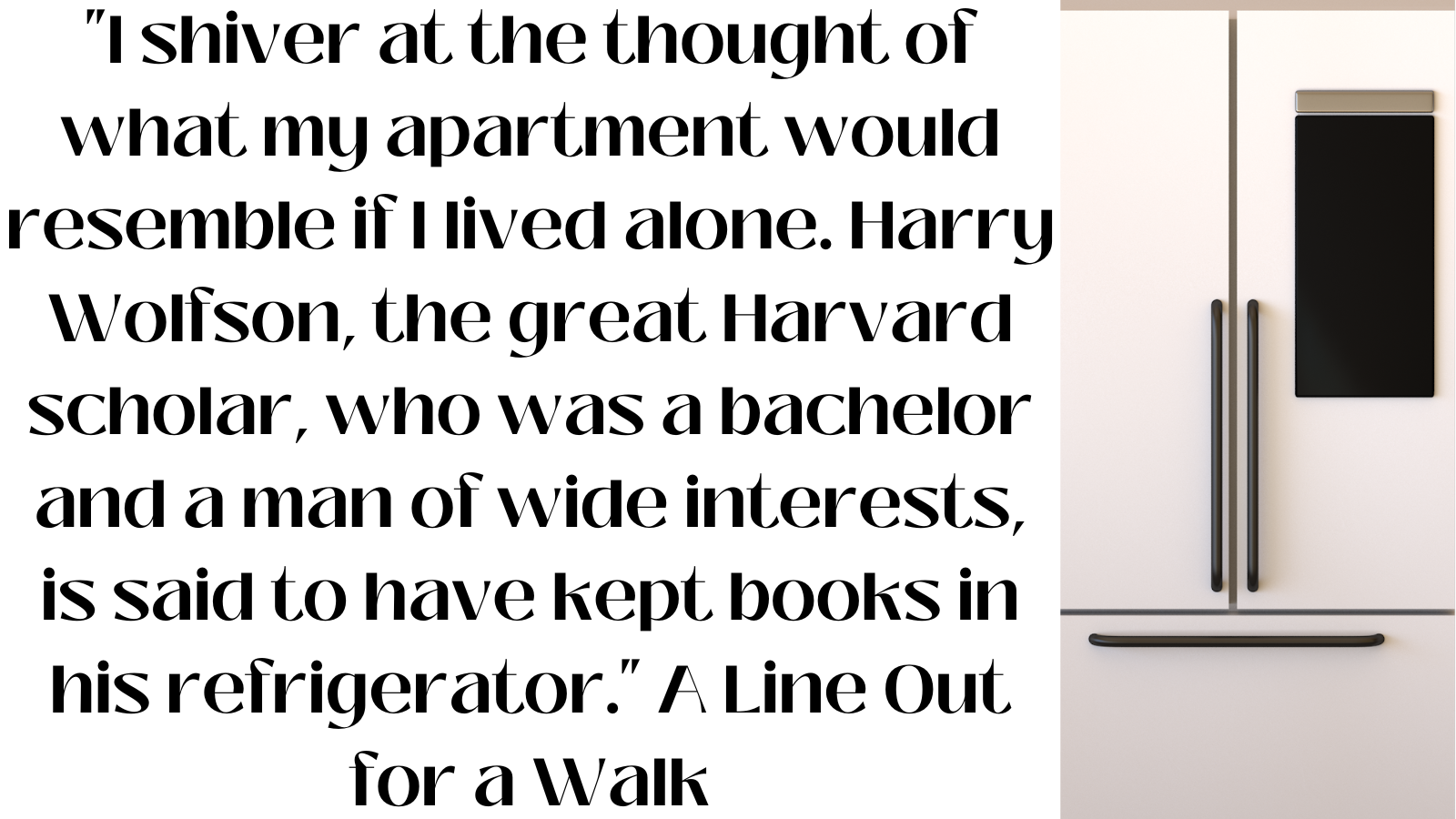
"Dr. Johnson is supposed to have said that Lady Mary's letters were the only book he ever read for pure pleasure." Life Sentences
"[Alexander] Pope was not a good man to have as an enemy. His was the sharpest pen in England, and when he unsheathed it he intended not to wound but to kill. . . . Pope accused Lady Mary of being personally filthy, treacherous, having a venereal disease, and being a whore." Life Sentences
Poet John Keats on essayist William Hazlitt's aggressive critiques: He "is your only good damner, and if ever I am damn'd--damn me if I should like him to damn me." Pertinent Players
"To become an intellectual was, for Orwell, to become deeply out of it, hypocritical, stupid, inhumanly corrupted, spiritually bankrupt." The Ideal of Culture
"T.S. Eliot took the name Prufrock . . . from a St. Louis furniture manufacturer." The Ideal of Culture
"At headquarters company, Fifth Armored Division, Fort Hood, Texas, in 1959 we were offered something called a good-conduct holiday if the company could go a full month with no car accidents or reported cases of venereal disease. We never got the holiday." Gallimaufry
"Montaigne was the first man to write freely about himself." Life Sentences
"[T]he scholar Justus Lipsius called [Montaigne] 'the French Thales.'" Life Sentences
"When someone called [Waugh's] attention to a typographical error in one of his books, he replied that one cannot get any decent proofreading now 'that they no longer defrock priests for sodomy.'" Gallimaufry
"After Randolph Churchill had what turned out to be a benign tumor removed through surgery, Waugh remarked that it was the only thing about Randolph that wasn’t malignant and they removed it." Gallimaufry
"Evelyn Waugh once described cowards in World War II as having an insufficient death wish." A Line Out for a Walk
"Waugh underwent what his father called his 'perversion to Rome.'" Gallimaufry
"Modernity itself became an affront to [Waugh] and Catholicism was the spar he chose to grasp against its choppy seas." Gallimaufry
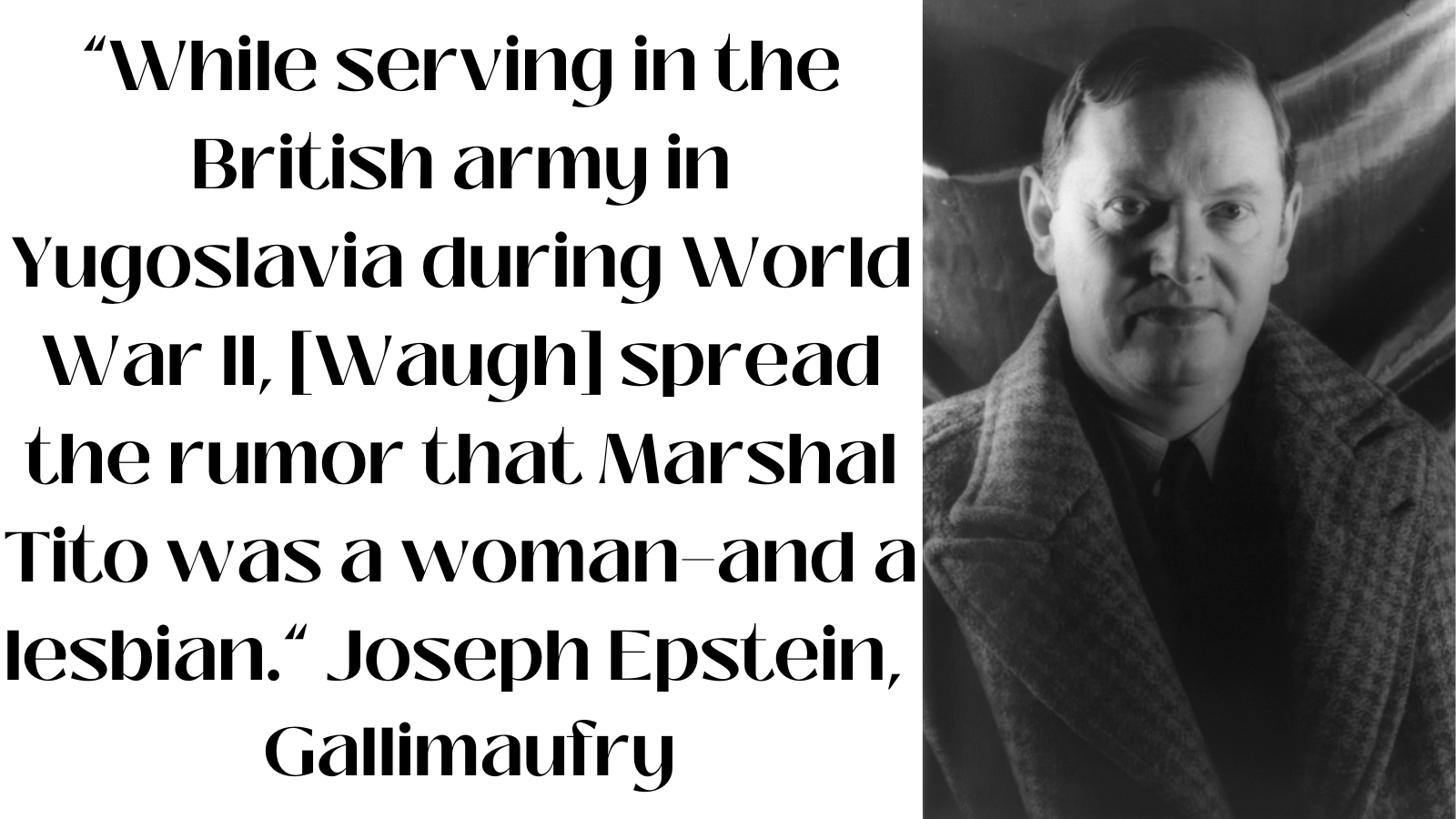
"[T]he Edinburgh Review not only put the City of Edinburgh intellectually 'on the map' but did something similar for serious journalism. . . . The Edinburgh Review paid its contributors, and paid them well enough to hold them up to standards of quality. In a letter outlining the original plan for the journal, Sydney Smith wrote that 'the rocks and shoals to be avoided are religion, politics, excessive severity, and irritable Scotchmen.'" Pertinent Players
"Sydney Smith was of that permanent minority, the part perpetually out of power, the Party of Common Sense." Pertinent Players
Sydney Smith once said of Macaulay that his conversation "contained 'some gorgeous flashes of silence.'" Pertinent Players
"The comic touches that light up Wodehouse’s prose are one of its chief delights. A drunken character is described as 'brilliantly illuminated.'" Gallimaufry
"Scott Moncrieff was often acerbic, and never more so than when writing about the Sitwells, Edith, Osbert, and Sacheverell, whom T. S. Eliot, giving way to his bawdy side, referred to as 'the Shitwells.'" The Ideal of Culture
"Paul Johnson, who was at Oxford at the same time, remembers [Ken] Tynan 'fighting a little lone war all on his own, to bring glamour back to Oxford. . . He specialized in going too far. He dressed quite as extravagantly outside the theater as on its stage, going about in bottle-green or purple suits, gold satin shirts worn with gold velvet bow ties, cloaks with red linings, and green suede shoes. He smoked Russian cigarettes through a black-and-white cigarette holder. He sometimes wore make-up. He was doing an Oscar Wilde." Life Sentences
C.S. Lewis was Tynan's tutor at Oxford. Tynan described Lewis as "terribly sound and sunny." Life Sentences
C.S. Lewis said of "Tynan's essays that if Lamb and Gibbon had been the same person, they would when young have produced student essays like Tynan's." Life Sentences
"[T]he severe French theater critic Paul Leautaud . . . ended his days living among his cats, and . . . when called upon at his Paris apartment [emitted] 'a strangled cry of grief . . . It is the sound [wrote Tynan in a 1955 essay] made by a critic at the end of his life.' Alone, sour, petulant, such is the fate of the critic. 'Logically, for his kind there is no other. You would become a critic? Consider M. Leautaud: and think again,'" wrote Tynan. Life Sentences
The journalist and screenwriter Ben Hecht "grew up with loving parents and his large, extended, nutty Jewish family of wild uncles and half-mad aunts, among then Tante Chasha, who advised the young Benjamin to 'shun small women because they had large vaginas.'" Pertinent Players
At Chicago's Dill Pickle Club, Ben Hecht once engaged in a public debate with Maxwell Bodenheim "over the question 'That People Who Attend Literary Debates are Imbeciles.' Hecht began by announcing that the affirmative side rested. Bodenheim followed with 'You win,' and the two men walked off with the evening's receipts." Pertinent Players
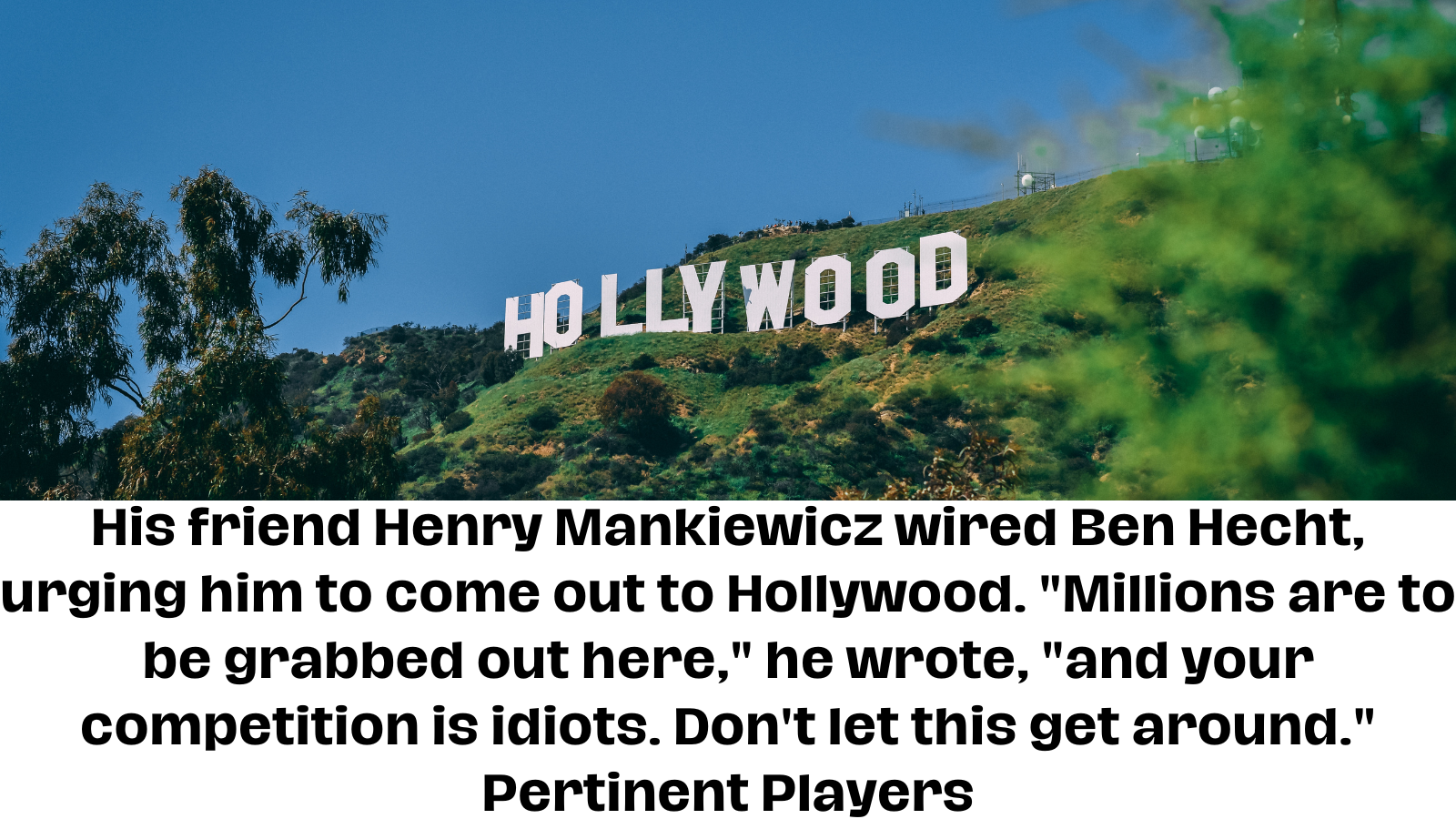
Ben Hecht worked on the screenplay for Gone with the Wind without having read the novel. Pertinent Players
The sports editor of the Chicago Daily Journal, Sherman Duffy, said, "Socially, a journalist fits in somewhere between a whore and a bartender, but spiritually he stands beside Galileo. He knows the world is round." Pertinent Players
During the first part of the twentieth century, Chicago and its "newspapers were wide open: one could still print, over the story of a dentist arrested for rape, the headline: 'Dentist Filled Wrong Cavity'; one could still quote a man, asked on the gallows if he had anything further to say, answering, 'Not at this time." Pertinent Players
“Football has the same relation to education,” [Robert] Hutchins said, “that bullfighting has to agriculture.” Gallimaufry
"A comic touch in connection with their divorce is that Rieff and Sontag apparently came to blows over who would get to keep the couple’s collection of back issues of Partisan Review." Gallimaufry
"What historical era produced the greatest aggregate of human intelligence? My own choice would be for the middle and late 18th-century London, where Samuel Johnson, Edmund Burke, Edward Gibbon, Joshua Reynolds, Oliver Goldsmith, James Boswell, David Garrick, Charles James Fox, Adam Smith, David Hume, and Richard Brinsley Sheridan walked the streets." Gallimaufry
"[Samuel Johnson biographer James] Boswell is said to have suffered no fewer than seventeen bouts of syphilis." Gallimaufry
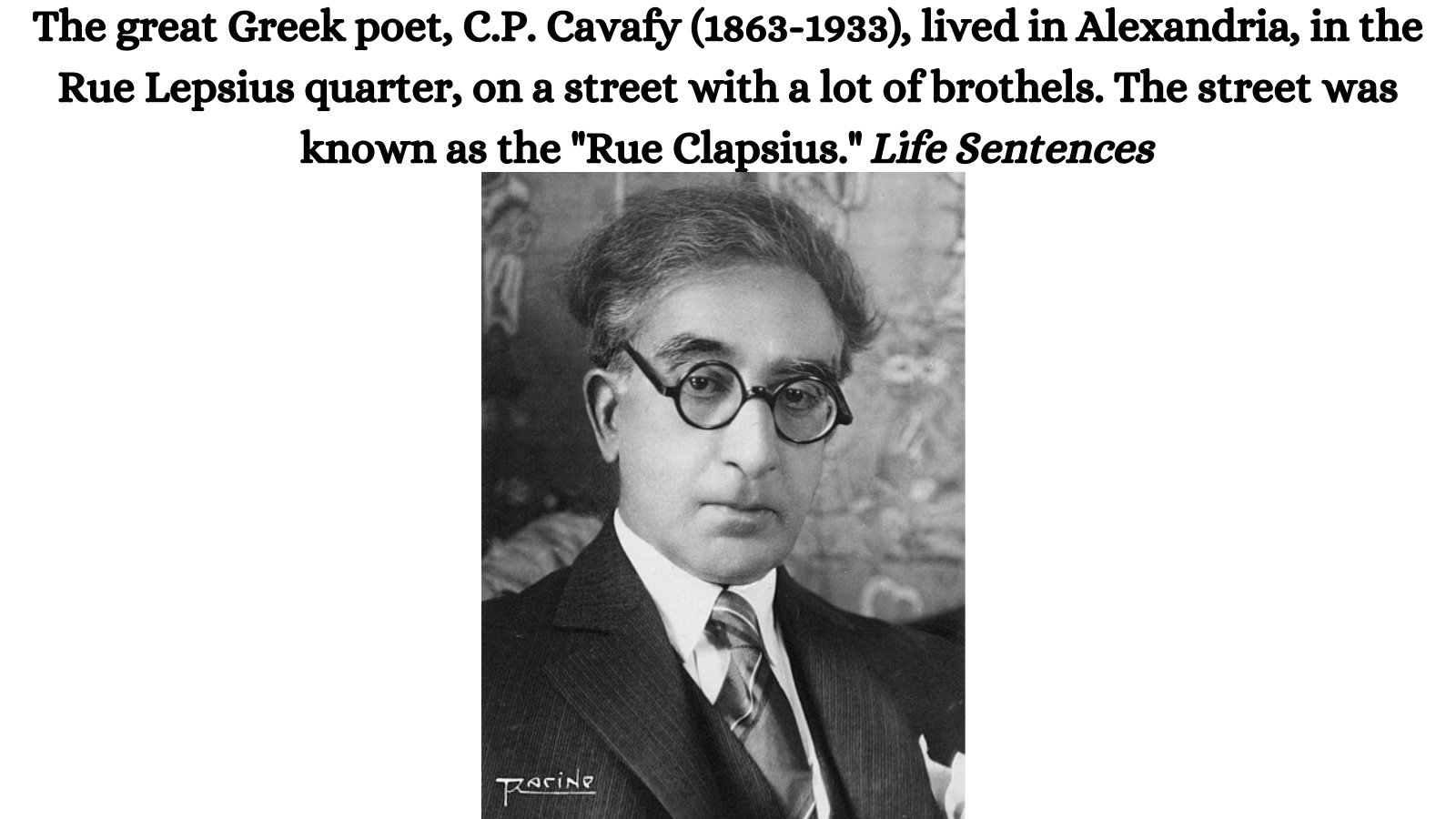
"Kip Fadiman had been exposed to anti-Semitism early in life. He once told me that he had been denied entry into graduate school at Columbia because the English department there had already chosen its one Jewish student, Lionel Trilling." Gallimaufry
"Saul Bellow, always mindful of the possibility of malice extended to a fellow scribbler, once told me that [James] Baldwin's problem was simple: 'He wanted to be Martin Luther Queen.'" Gallimaufry
”Will Rogers, a contemporary of Fields, famously said that he never met a man he didn't like (causing George Jessel to say that he once had a wife who felt the same way, and it turned out to be no bargain)." Gallimaufry
"When Jean-Paul Sartre wished to meet with him, Solzhenitsyn felt honor-bound to refuse this particularly egregious 'useful idiot.'" Gallimaufry
"Old radicals such as Paul Goodman used to say [that college] was a sure sign that one's spirit had been properly broken." Life Sentences
"In his diary the snobbish Chips Cannon reports once having two queens dine at his home on the same evening, but, in his utter elation, he became too drunk to recall anything about the evening." Once More Around the Block
Henry Fowler's collection of essays that he self-published "fell flat: being neither good enough nor bad enough for popular success." [Quoting G.G. Coulton]. Pertinent Players
Italo Svevo once told an off-color joke to James Joyce, "who reproved him for having done so, remarking that 'I never say that sort of thing, though I write it.'" Pertinent Players
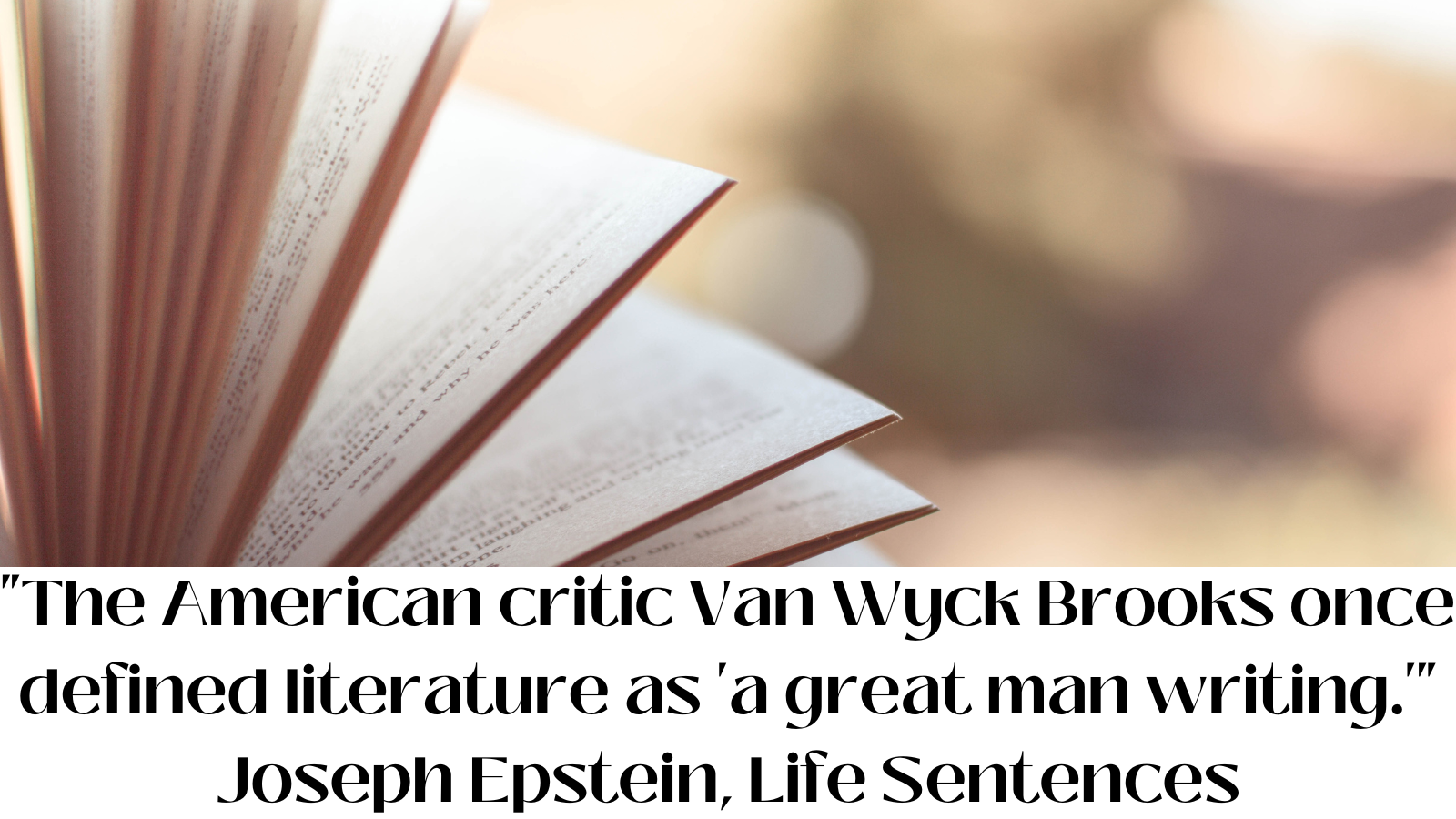
"[O]ne feels a sadness at coming to [the conclusion of a great book]. One has lived in the close company of an extraordinary man, swayed for weeks to the undulations of his mind, and now, at book's end, it is over. The Harvard economic history Alexander Gerschenkron has told of coming to the end of War and Peace with this feeling of sadness so heavy upon him that he paused, sighed, and then turned the novel over and began it again from the beginning." Life Sentences
"The Fitzgeralds, Scott and Zelda, were to drinking what Fred Astaire and Ginger Rogers were to dancing." Life Sentences
"[W]hile drunk, the Fitzgeralds' idea of amusing behavior was to collect everyone's watch and jewelry and boil them in a can over the stove; or to call out the fire department--upon the arrival of which Zelda, pointing to her left breast, would claim that the fire was in her heart; or to destroy apartments, their own and other people's; or to insult servants, friends, and anyone else in sight, with Scott often ending the evening by getting in a fist fight, which he would inevitably lose. Not quite, the Fitzgeralds, what we should call today a 'fun couple.'" Life Sentences










